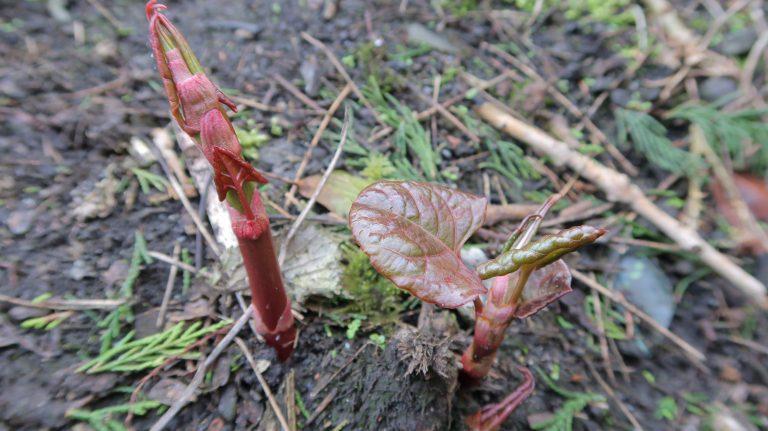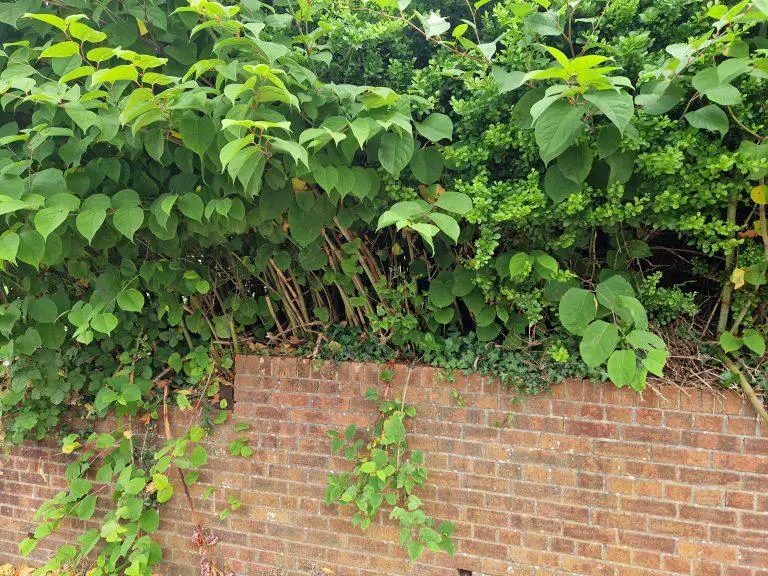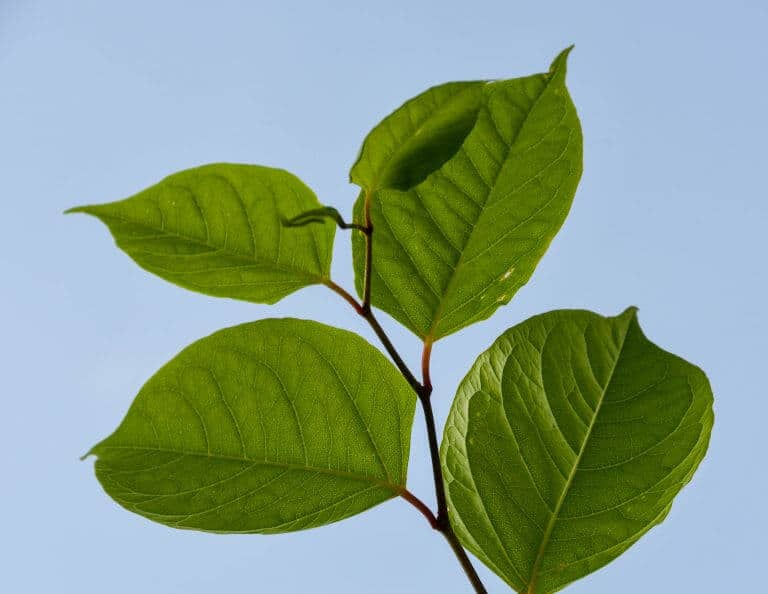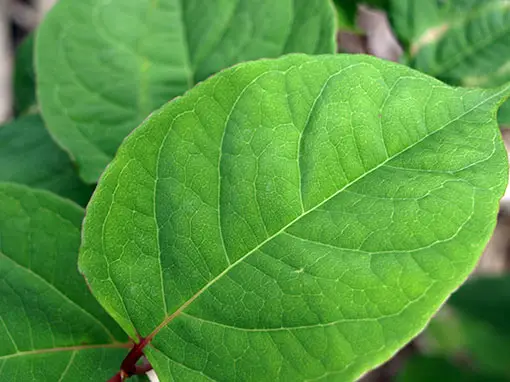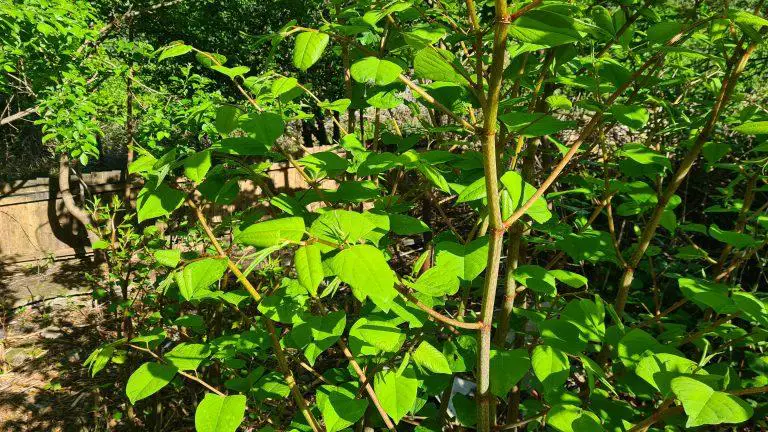Japanese knotweed is a highly invasive species that can have significant impacts on soil ecosystems. In particular, the knotweed crown can affect soil microbes, which are crucial for nutrient cycling and soil health.
In this blog, we will explore the connection between Japanese knotweed crowns and soil microbes and how this knowledge can be used to control and eradicate invasive plants.
According to a study published in the journal Soil Biology and Biochemistry, the presence of knotweed can alter the composition and diversity of soil microbial communities.
Understanding Soil Microbes and Their Role in Soil Health
Soil microbes are a vital part of the soil ecosystem, playing an important role in nutrient cycling and plant growth. They come in all shapes and sizes, from bacteria to fungi to protozoa, and each type has its own unique role within the soil environment. Understanding these organisms is essential for maintaining healthy soils that support life on Earth.
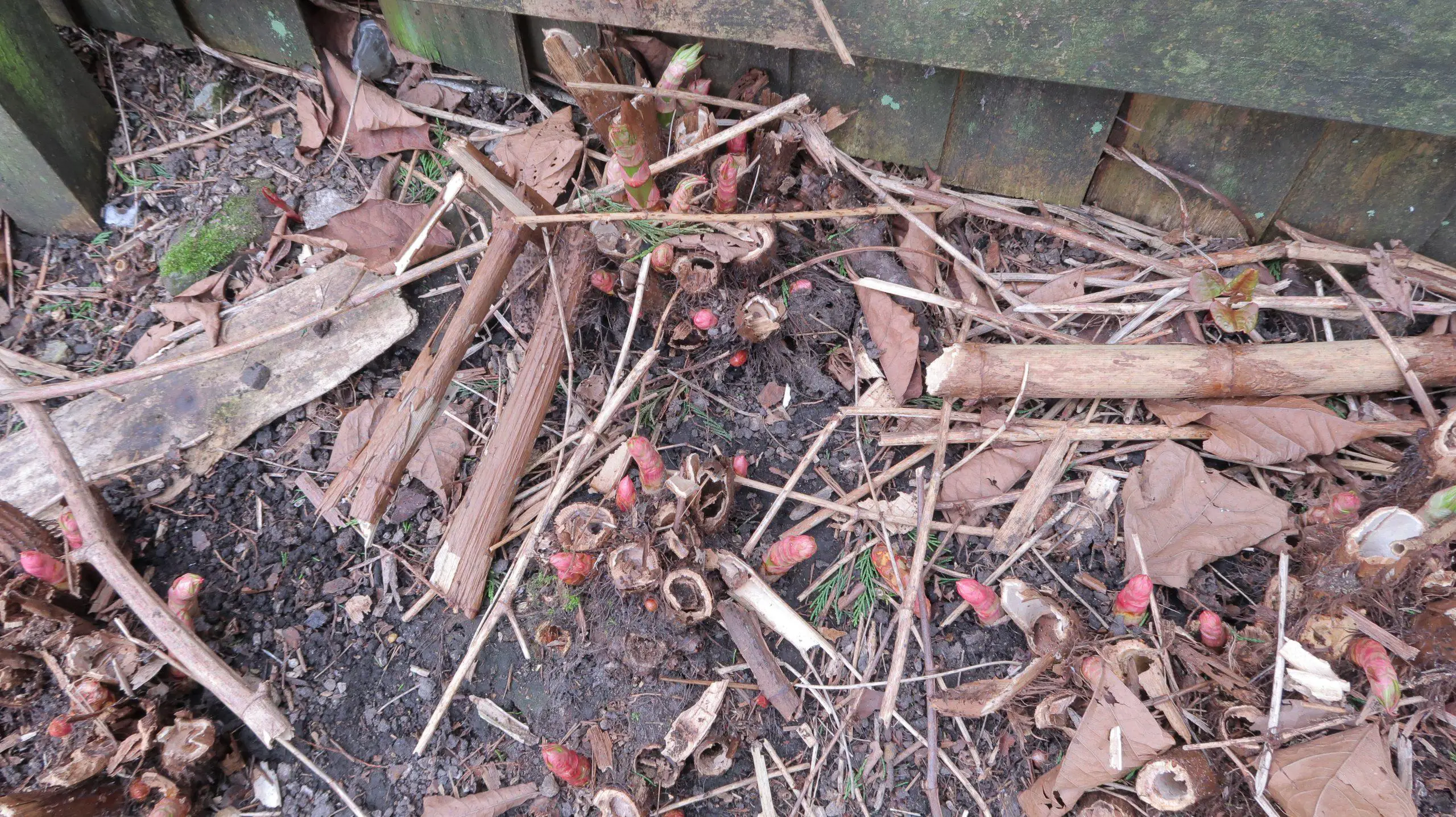
Understanding Soil Microbes
1) Bacteria – These single-celled organisms are some of the most abundant microbes found in soil. They play a key role in breaking down organic matter into simpler compounds that can be used by plants as nutrients.
2) Fungi – Fungi form intricate networks of threadlike filaments called hyphae which help break down complex molecules like lignin and cellulose into smaller components such as glucose or nitrogen compounds.
3) Protozoa – These single-celled animals feed on bacteria and other small particles found in the soil, helping to keep populations of harmful bacteria under control while also releasing waste products that can act as fertilizers for plants.
4) Algae – Algae produce energy through photosynthesis which helps enrich soils with oxygen, making them more hospitable for other microorganisms.
Role of Soil Microbes in Nutrient Cycling and Plant Growth
1) Nutrient Cycling – Soil microbes play a major role in cycling essential nutrients like nitrogen, phosphorous, potassium, and sulfur through the soil system. They are able to transform these elements into forms that can be taken up by plants and other organisms.
2) Plant Growth – Soil microbes are also important for providing essential minerals and nutrients to plants, while also helping to create a healthy environment in which they can grow and thrive. By breaking down organic matter into simpler elements, they release plant-available nitrogen, phosphorus, potassium, zinc, iron, and other essential micronutrients.
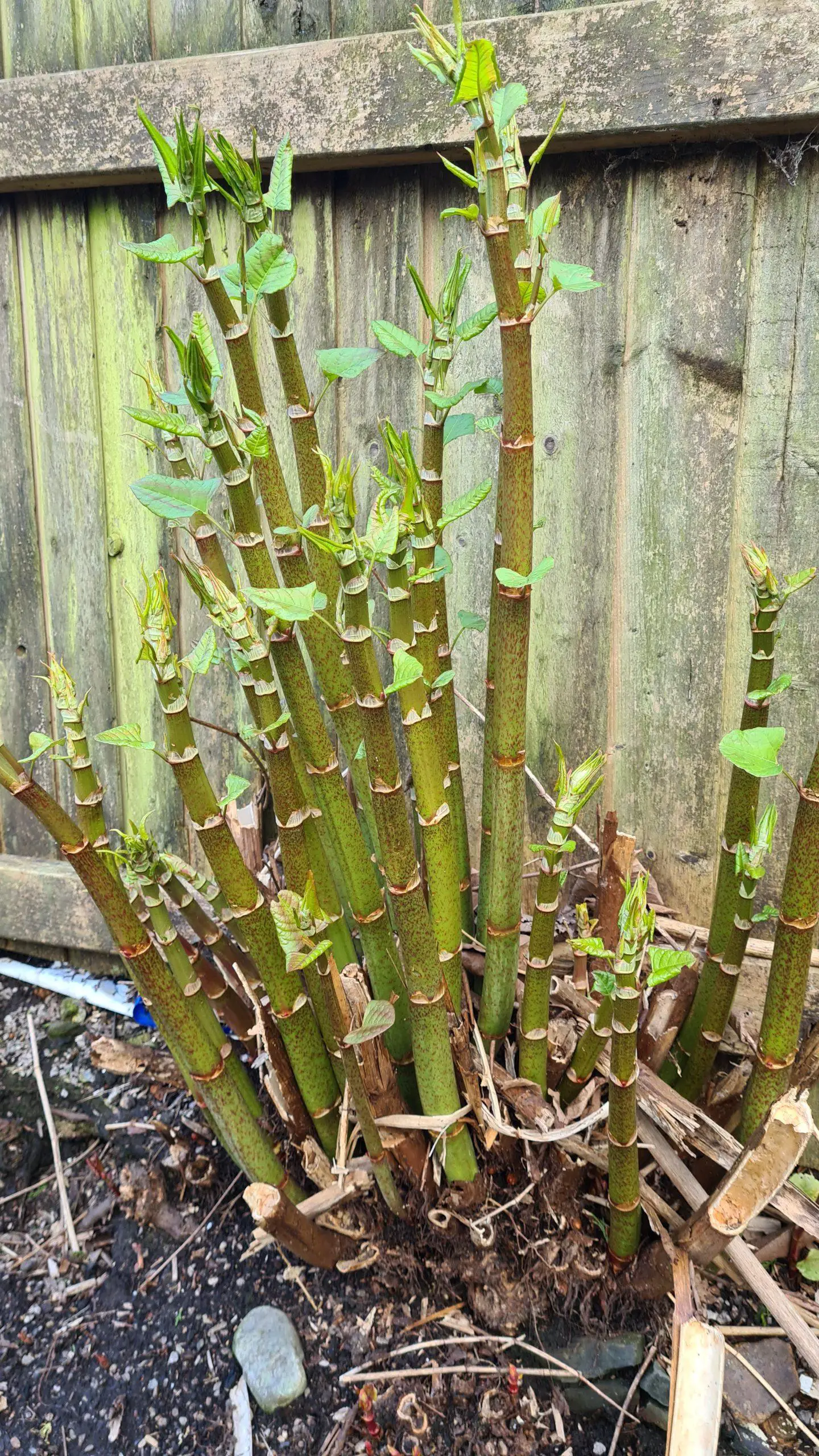
The Impact of Japanese Knotweed Crowns on Soil Microbes
Japanese Knotweed (Fallopia japonica) is an invasive species that has been wreaking havoc in ecosystems across the world. Although its presence can have a range of negative impacts, one of the most concerning aspects is its potential to affect soil microbial communities. In this article, we will look at how knotweed crowns impact soil microbes and discuss the implications for soil health and plant growth.
Soil microbes, such as bacteria, fungi and archaea, are essential players in the ecosystem. They play a critical role in nutrient cycling, soil fertility and plant growth, as well as providing resistance to disease and stress. As knotweed spreads throughout an area, it can alter the composition of microbial communities. The crowns of this species are known to contain a variety of toxins and allelochemicals that can be released into the soil. These compounds can disrupt microbial communities and reduce the number of beneficial species present.
Knotweed crowns also have an effect on soil structure, which can further influence microbial populations. For example, research has shown that the presence of knotweed can reduce the amount of organic matter in soils, as well as decrease pore space and aggregation. This leads to reductions in soil aeration and water infiltration, which can impair microbial activity.
The impacts of knotweed on soil microbes have serious implications for soil health and plant growth. For example, reduced microbial diversity can lead to an imbalance in nutrient cycling, as well as an increase in soil-borne diseases. Furthermore, the reduced pore space and aggregation can limit root growth and impair water infiltration. This can lead to decreased plant productivity and reduced crop yields.
Overall, it is clear that Japanese Knotweed can have a significant impact on the composition and diversity of soil microbial communities. This can lead to a range of negative consequences, from impaired nutrient cycling and soil fertility to decreased crop yields. As such, it is important that steps are taken to limit the spread of this species in order to protect our soils and ecosystems.
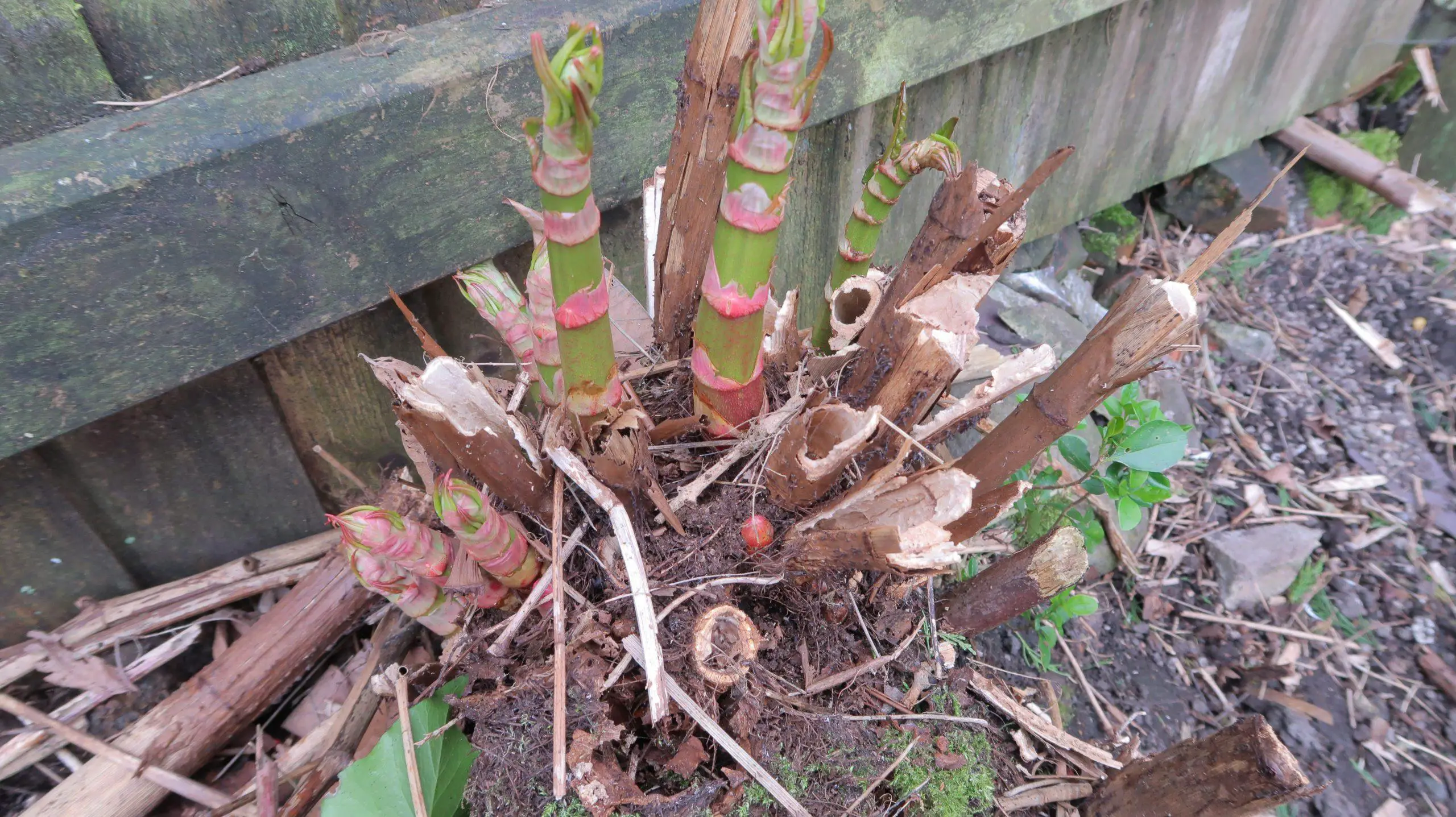
The Connection Between Soil Microbes and Japanese Knotweed Growth
Japanese knotweed (Fallopia japonica) is an invasive species that has spread to many countries, including the United States. It grows rapidly and can cause damage to buildings and infrastructure, as well as compete with native plants for resources.
As such, it is important to understand how this plant persists in its environment. Recent research has highlighted the potential role of soil microbes in Japanese knotweed growth and persistence.
The Connection Between Soil Microbes and Japanese Knotweed Growth
The presence of certain types of soil microorganisms can have a significant effect on Fallopia japonica growth rates and survival rates. Studies have shown that some types of bacteria play an important role in providing nutrients for the roots of this invasive species, which may contribute to its ability to quickly colonize new areas.
In addition, other organisms such as fungi are known to form symbiotic relationships with knotweed root systems which allow them access to more water or minerals than they would otherwise be able to obtain from their surrounding environment alone.
How Soil Microbes Can Affect Knotweed Growth And Persistence
Soil microorganisms are not only associated with increased nutrient availability but also influence other aspects related to knotweed growth and persistence.
For example, some microorganisms can produce compounds that may inhibit the growth of other plants in the surrounding area, allowing Japanese knotweed to outcompete them for resources.
Furthermore, certain fungi have also been found to form a symbiotic relationship with Fallopia japonica roots, providing additional energy sources or protection from parasites and predators.
The Potential of Soil Microbes As A Tool For Knotweed Control
The presence of soil microorganisms can be used to create an environment that is unfavourable for the growth and spread of Japanese knotweed, making it easier to control. By introducing certain types of bacteria or fungi into the soil, it is possible to inhibit the growth of Fallopia japonica while promoting the growth of native plants.
Additionally, some types of microorganisms can even be used as biological control agents, attacking and killing knotweed directly.
Overall, the presence of soil microorganisms plays an important role in Japanese knotweed growth and persistence. By understanding the various ways that these organisms can affect knotweed, it is possible to use them as a tool for controlling this invasive species. With further research, soil microbes may be an effective and environmentally friendly means of managing Japanese knotweed infestations.
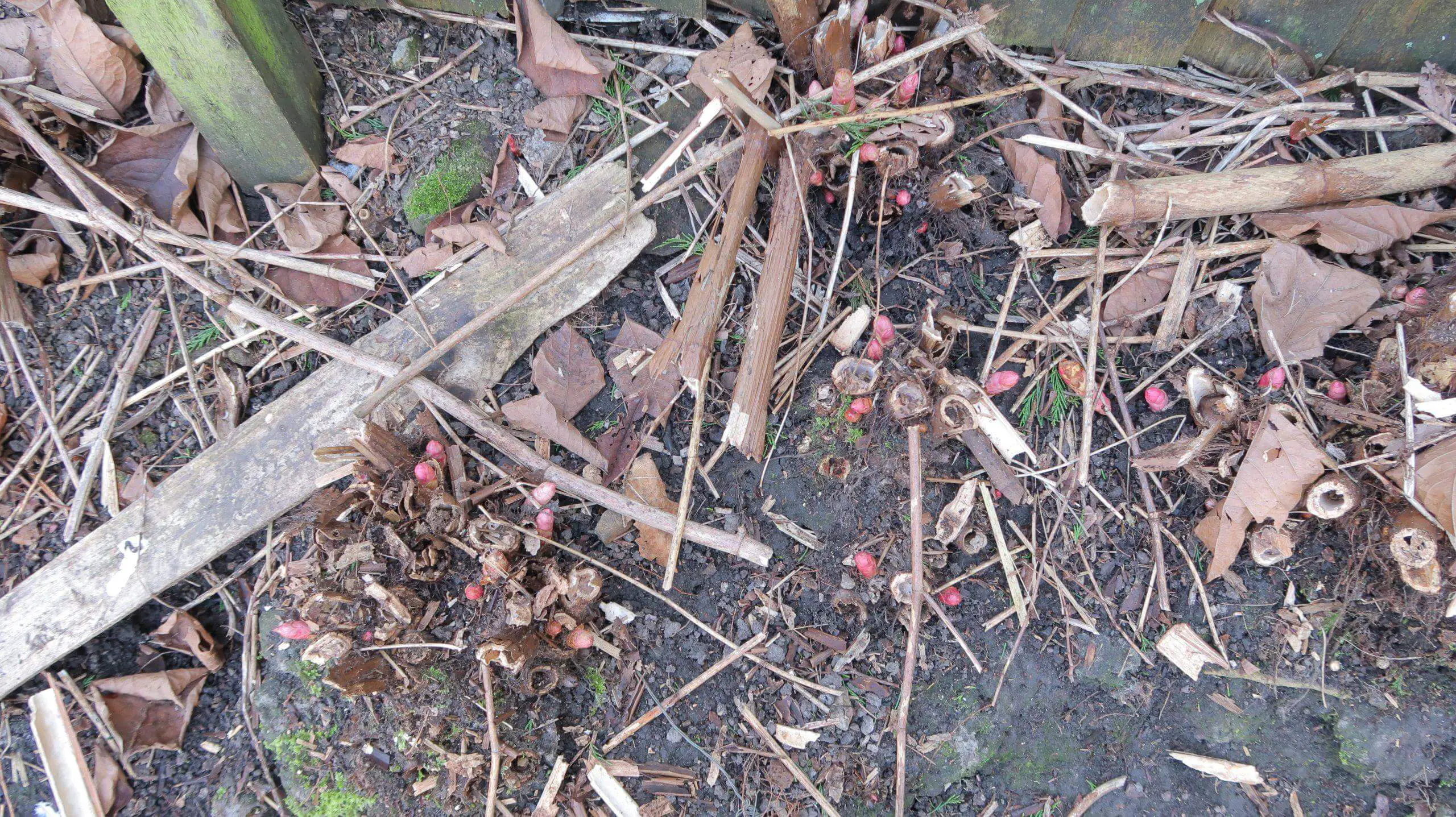
Strategies for Managing Japanese Knotweed to Protect Soil Microbes
Japanese knotweed is an invasive weed species that can wreak havoc on soil ecosystems. It spreads quickly and has the potential to cause significant damage if left unmanaged. The good news is that there are strategies for managing Japanese knotweed in order to protect the delicate balance of soil microbes, which play a critical role in maintaining healthy soils.
Two of the most effective methods are chemical treatments and manual excavation and removal. We’ll explore both techniques, their benefits and limitations, so you can decide which method best suits your needs.
Chemical Treatments. Chemical treatments can offer an effective and long-term solution for controlling knotweed, while also minimizing the impact on soil microbes. The most common methods are herbicides or glyphosate-based treatments, which are applied directly to the crown of the plant.
These treatments are not only effective at suppressing the growth and spread of Japanese Knotweed, but they also target the plant itself instead of the surrounding soil. This means that soil microbes are not disturbed and can remain intact.
Manual Excavation and Removal. Manual excavation and removal of knotweed crowns is another effective management practice that eliminates the need for chemical treatments while protecting the soil structure and minimizing soil disturbance. By removing the entire plant from the ground, including its root system, you can help prevent further spread and re-infestation.
This technique also allows for more control over the extent of soil disturbance and can be a great way to protect fragile soil ecosystems.
No matter which method you choose, it’s important to remember that Japanese knotweed can be highly invasive and difficult to manage. Taking the time to research and understand your options will help ensure you take the right steps in protecting your soil ecology.
With careful planning and a commitment to long-term management, you’ll have the best chance of keeping knotweed at bay while providing a safe environment for your precious soil microbes.
Final thoughts
In conclusion, soil microbes are essential for maintaining healthy soils and supporting life on Earth. Understanding these organisms is vital for promoting nutrient cycling, plant growth, and overall soil health. With the right management practices in place, such as crop rotation, cover crops, composting, and mulching, we can ensure that these beneficial organisms remain healthy and abundant in our soils.
Japanese knotweed crowns can have a significant impact on soil microbial communities, which are essential for soil health and plant growth. Understanding the connection between knotweed and soil microbes can help in developing effective control strategies that minimize the impact on soil health.
If you suspect that you have Japanese knotweed on your property, it’s important to act quickly and seek professional help to ensure that eradication efforts are as effective as possible. By taking proactive steps to control knotweed and protect soil microbes, you can help to preserve our natural resources for future generations.

